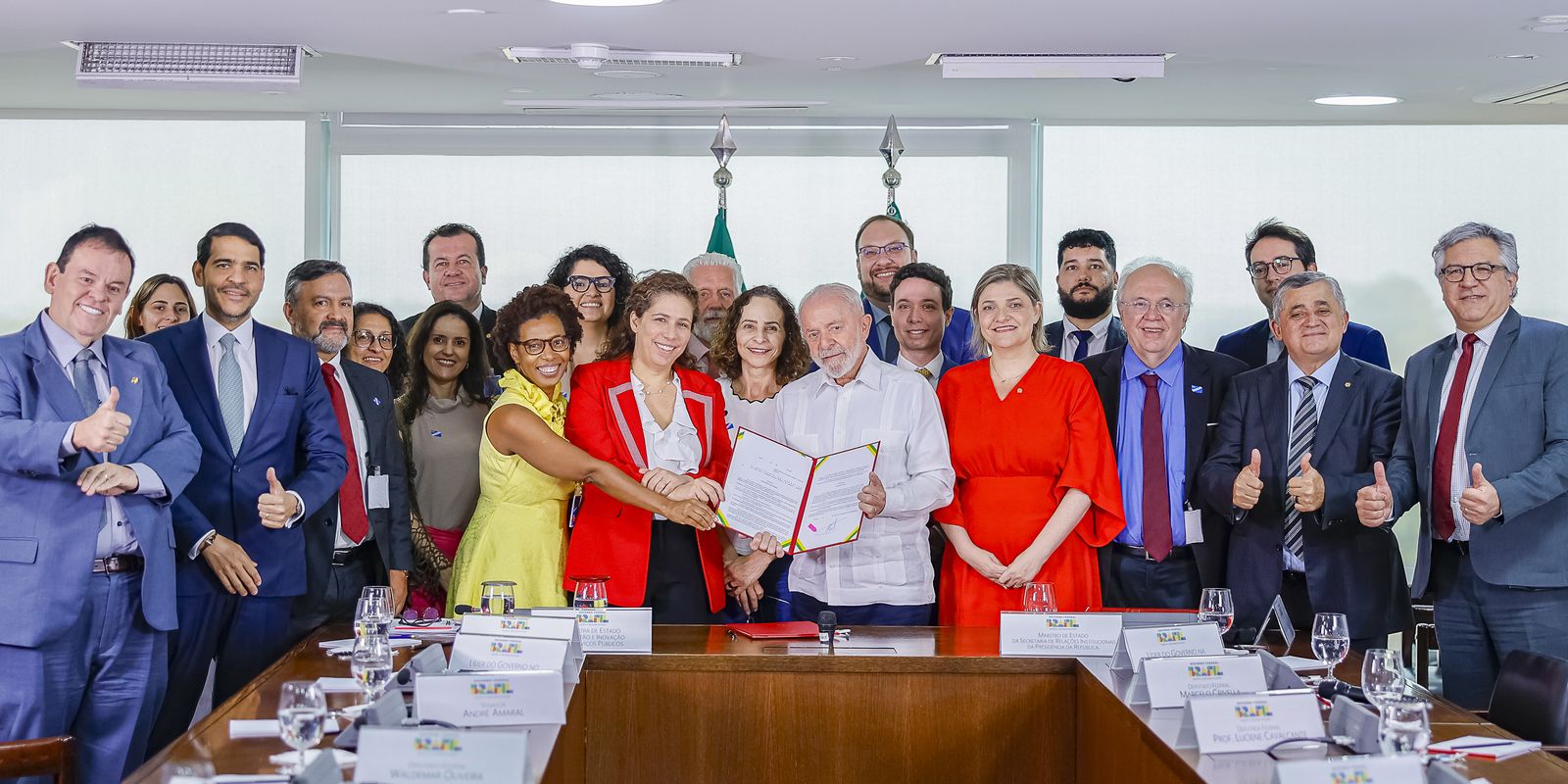President Luiz Inácio Lula da Silva will sign Law No. 2,258/22 on Monday (9), which aims to unify federal public examinations. The proposal was processed in the National Congress for two decades and the vote was concluded in August.
The new rules will have a transition period and will be mandatory from January 1, 2028, “but their application may be anticipated through an act that authorizes the opening of each public competition”, according to the Presidency of the Republic.
Online tests
One of the new features is the possibility of conducting the tests in whole or in part remotely via the internet or controlled electronic platforms. This modality will only be applied if there is a guarantee of equal access for all candidates. This section still needs to be regulated by the Executive.
The rule only applies to federal competitions, excluding selections for public companies for magistrates, the Public Prosecutor’s Office and public companies or mixed-economy companies that do not depend on federal resources for personnel and operating expenses.
The law states that public competitions will aim to equally select candidates by assessing their knowledge, skills and, where applicable, the competencies necessary to efficiently perform the duties of the public office or job, ensuring the promotion of diversity in the public sector.
“Without prejudice to other forms or stages of assessment provided for in the notice, the public competition will include, at a minimum, assessment by tests or tests and qualifications, with the possibility of taking a course or training program, provided that it is justified in view of the nature of the duties of the position and provided for in the notice”, says the law.
According to the Minister of Management and Innovation in Public Services, Esther Dweck, the new rules also aim to prevent the judicialization of competitions.
The legislation establishes that the opening of a competition must be motivated by the evolution of the staff over the last five years and the estimate of future needs in view of the institutional performance goals for the next five years; name and number of positions to be filled, with a description of their duties; non-existence of a previous valid public competition for the same positions, with a candidate approved and not appointed; adequacy of the filling of the positions, in view of the needs and possibilities of the entire public administration; and estimate of the budgetary-financial impact.
The text also states that, if there is a previous competition still valid, with people to be appointed, the exceptional opening of a competition is permitted, provided that the number of approved candidates still to be appointed does not complete the staff.
States and municipalities may have their own rules for competitions.
Notices
The tests may be classificatory, eliminatory or classificatory and eliminatory, regardless of the type or evaluation criteria. The law establishes that the assessment of knowledge will be done through written, objective or essay tests, and oral tests, covering general or specific content; through the assessment of skills, with the preparation of documents and simulation of tasks specific to the position, as well as physical tests compatible with their activities; through the assessment of competencies, with psychological evaluation, mental health examination or psychotechnical test, conducted by a professional qualified under the terms of specific regulations.
The notice must clearly indicate, for each type of test, whether the assessment will be of knowledge, skills or competencies, and may also include a combination of these assessments in the same test or stage.
The assessment by qualifications will be based on the knowledge, skills and competencies necessary for performance and will be of a classificatory nature.
The planning and execution of the public competition may be assigned to the internal organizing committee of the body or entity; or to a public body or entity belonging to the same federative entity or, exceptionally, to a different entity, which is specialized in the selection, training or evaluation of public servants or employees.
The text also states that the public tender notice must provide, at a minimum, the name and number of positions to be filled, with a description of their duties and the knowledge, skills and competencies required for the activities to be performed by the civil servant; initial salary, with a breakdown of the amounts that comprise it; the minimum and maximum percentages of vacancies reserved for people with disabilities or who fall within the legal hypotheses of affirmative action and historical reparation; and the conditions for taking the tests by people in special situations.
The completion of a training course or program is optional, unless otherwise provided for in specific legislation. According to the law, the training course or program may be eliminatory, classificatory, or eliminatory and classificatory in nature. It must introduce candidates to the activities of the agency or entity, evaluating their performance in the execution of duties related to the position.
The duration of the program will be defined in the regulations or in the competition notice, and must be a minimum of one month and, unless otherwise provided for in specific legislation, a maximum of three months, counted from the effective start of activities.
Candidates who do not formally enroll in the training course within the deadline set by the notice of call, or who do not complete at least 85% of their course load, will be considered to have failed and, consequently, eliminated from the competition.
The notice must also address the conditions for taking the tests by people in special situations; the forms of publishing the results; the form and deadline for filing appeals; the validity period of the competition and the possibility of extension.

















